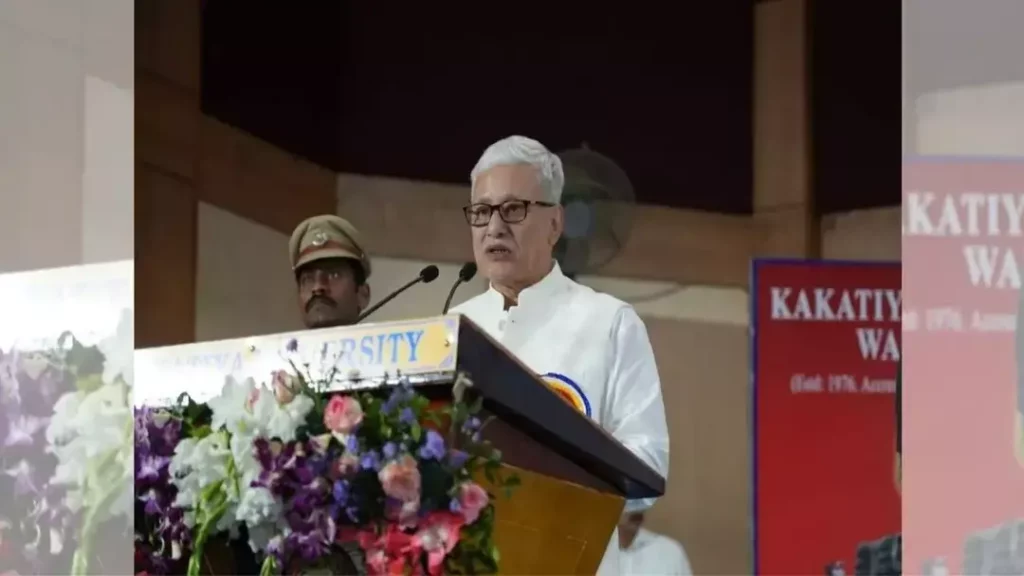
Title: Ordinance to amend Telangana Panchayat Raj Act reaches Governor
The Congress government in Telangana is awaiting the assent from Governor Jishnu Dev Varma for the draft ordinance amending the Telangana Panchayat Raj Act. The ordinance aims to provide a 42 percent reservation for backward classes in the upcoming local body elections. The move is seen as a significant step towards ensuring representation of marginalized communities in the panchayat raj institutions.
The Telangana Panchayat Raj Act was passed in 2018, and since then, there has been a growing demand for increasing the reservation quota for backward classes. The existing reservation quota of 33 percent has been seen as inadequate by many, particularly the backward classes. The Congress government, which came to power in 2018, had promised to increase the reservation quota to 50 percent. However, due to various reasons, including the opposition from some political parties, the government was unable to implement the promise.
The draft ordinance proposes to invoke the provision that allows the state to alter reservations through its executive authority. This provision is enshrined in the Constitution, and it empowers the state government to make changes to the reservation quota without amending the Constitution. The ordinance would amend the Telangana Panchayat Raj Act to provide a 42 percent reservation for backward classes in the upcoming local body elections.
The move is expected to benefit the backward classes, including the Scheduled Castes (SCs), Scheduled Tribes (STs), and Other Backward Classes (OBCs). The backward classes have been demanding reservation in panchayat raj institutions for a long time, and the government’s decision to provide a 42 percent reservation is seen as a significant step towards addressing their demands.
The ordinance is expected to benefit approximately 42 percent of the population in Telangana, which includes SCs, STs, and OBCs. The backward classes have been facing discrimination and marginalization for a long time, and the provision of reservation is seen as a way to ensure their representation in panchayat raj institutions.
The Congress government’s decision to provide a 42 percent reservation for backward classes is seen as a significant step towards promoting social justice and equality. The backward classes have been demanding reservation in panchayat raj institutions for a long time, and the government’s decision to provide a 42 percent reservation is seen as a way to address their demands.
The ordinance is expected to have a significant impact on the upcoming local body elections. The backward classes are likely to benefit significantly from the provision of reservation, and it is expected to increase their representation in panchayat raj institutions. The move is also expected to promote social justice and equality, and it is seen as a significant step towards addressing the historical injustices faced by the backward classes.
The opposition parties in Telangana have been criticizing the government’s decision to provide a 42 percent reservation for backward classes. They have been accusing the government of trying to divide the society on the basis of caste and religion. However, the government has been defending its decision, saying that it is aimed at promoting social justice and equality.
The draft ordinance is expected to be approved by the Governor soon, and it would come into effect after its publication in the official gazette. The ordinance would provide a 42 percent reservation for backward classes in the upcoming local body elections, and it is expected to have a significant impact on the elections.
In conclusion, the ordinance to amend the Telangana Panchayat Raj Act is a significant step towards promoting social justice and equality. The provision of a 42 percent reservation for backward classes is expected to benefit approximately 42 percent of the population in Telangana, and it is seen as a way to address the historical injustices faced by the backward classes. The move is expected to promote social justice and equality, and it is seen as a significant step towards addressing the demands of the backward classes.






